
This wallchart outlines the steps for correctly processing and cleaning the Ipas MVA Plus and Ipas EasyGrip cannulae.
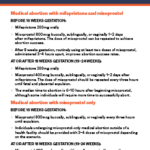
This dosage card serves as a quick reference guide for health-care providers who are administering medical abortion.
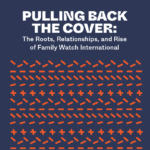
This report aims to shed light on FWI, a group that peddles disinformation and homophobia that is impacting health, education, and human rights policy from Arizona to East Africa and in multilateral spaces like the United Nations.
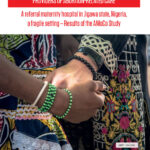
This evidence brief from the AMoCo study presents selected results of a knowledge, attitudes, practices, and behaviors (KAPB) survey given to health professionals in Jahun, Nigeria providing abortion-related care.
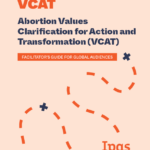
Abortion values clarification for action and transformation (VCAT) is a curriculum designed to support groups in examining the individual and collective values, attitudes and beliefs related to abortion. A VCAT workshop helps make values and actions related to abortion access more conscious. It transforms conversations about abortion fueled by stigma and polarized arguments toward those driven by curiosity, empathy and mutual growth.
Aclaración de valores para transformación y acción (AVTA) respecto al aborto: Guía de facilitación para públicos mundiales. Segunda edición
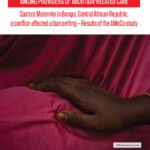
This evidence brief from the AMoCo study presents selected results of a knowledge, attitudes, practices, and behaviors (KAPB) survey given to health professionals providing abortion-related care. Providers are critical to providing timely and high-quality comprehensive abortion care (CAC) that can decrease abortion-related complications. This survey aims not only to assess the KAPB of CAC providers in hospital settings but to identify provider-related barriers to adequate CAC and points for improvement in the provision and accessibility of CAC services.

New research shows why bisexual and pansexual youth need comprehensive sexuality education that meets their needs
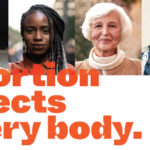
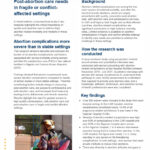
This research snapshot summarizes methods, key findings, and implications of the Abortion-related Morbidity and Mortality in Conflict-affected and Fragile Settings study conducted in Jahun, Nigeria and Bangui, Central African Republic.
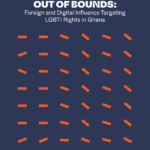
In 2021, the “Promotion of Proper Human Sexual Rights and Ghanaian Family Values Bill” was introduced in the Ghanaian Parliament. The bill, if passed, would criminalize LGBTI people and behavior, as well as those who support their rights, and even those who report on lesbian, gay, bisexual, transgender, and intersex (LGBTI) issues. While there has been significant national and international media coverage of the bill, what is less understood is who is driving promotion of the bill, and the accompanying harmful public debate. This report seeks to fill that knowledge gap, identifying who is behind the external anti-LGBTI influence, detailing connections between Ghanaian leaders and conservative foreign groups, and showing how anti-LGBTI rhetoric, and social and other media traffic, are being shaped and driven by these interests. As of March 2023, the anti-LGBTI bill is still pending in Ghanaian parliament. With this report, we provide recommendations to continue exposing the origins of anti-LGBTI hatred in Ghana and guidance on supporting LGBTI rights and reclaiming the narrative from homophobic politicians and other personalities to demonstrate that reactionary narratives against LGBTI rights are not universal in Ghana.
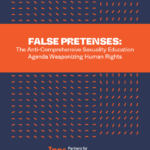
Despite comprehensive sexuality education’s proven positive impact on the sexual and reproductive health and rights (SRHR) of adolescents, there is a growing movement opposed to the curricula based on moral or religious grounds.
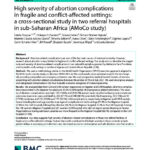
This study describes the magnitude and severity of abortion-related complications in two referral hospitals located in two different types of fragile and conflict-affected settings and supported by Médecins Sans Frontières.
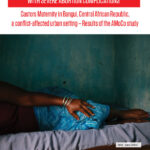
This evidence brief summarizes key findings from the qualitative component of the AMoCo study, which aims to describe the access to care and treatment of women and girls hospitalized in Castors Maternity Hospital in Bangui for potentially life-threatening and near-miss abortion complications such as severe haemorrhage, severe sepsis, and uterine and intra-abdominal perforation.
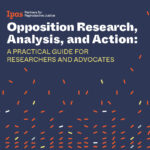
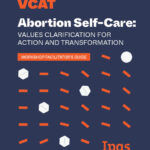
Research and evidence show that people can safely and effectively self-manage medical abortion, also called abortion with pills, when they have accurate information. Abortion self-care (ASC) is abortion with pills without the necessity of a prescription. With ASC, a pregnant person manages as much of the process as they want on their own, with or without the involvement of a health-care provider.
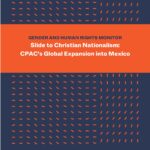
The U.S.-based Conservative Political Action Conference (CPAC), an event well known as a nexus for right-wing activism, is holding its first forum in Mexico. This brief—written for both opposition researchers and anyone interested in the global anti-rights movement—provides an overview of CPAC’s background and international expansion, with a focus on how CPAC is collaborating with far-right actors in Mexico to advance its Christian nationalist agenda.
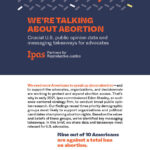
We need more Americans to speak up about abortion—and to support the advocates, organizations, and decisionmakers working to protect and expand abortion access. That’s why Ipas worked with Eden Stanley, an audience-centered firm, to conduct broad public opinion research. Our findings reveal three priority demographic groups most likely to support organizations and political candidates championing abortion rights. Based on the values and beliefs of these groups, we’ve identified key messaging takeaways. In this brief, we share data and takeaways most relevant for U.S. advocates.
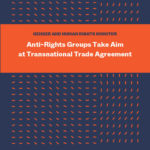
Anti-rights groups and movements are expanding their work into new and seemingly unlikely spaces to impose regressive, fundamentalist Christian views on human rights, family, gender, and sexuality. This briefing paper outlines the activities of three anti-rights groups based in the Global North leading a transnational attack on an economic agreement between the European Union (EU) and its country partners in Africa, the Caribbean and Pacific (ACP) – known as the ACP-EU Partnership Agreement (the Agreement). Christian Council International, Family Watch International, and the Political Network for Values are taking issue with EU efforts to include protective language on human rights, and specifically sexual and reproductive health and rights within the Agreement. While it is unlikely that they will succeed in altogether derailing the Agreement renewal process, the investment of attention, time, and money warrants closer inspection by human rights activists and the media, as well as EU and ACP negotiators, parliamentarians, and other stakeholders.
Safe, high quality abortion services are a critical component of reproductive health care. But what constitutes high quality abortion services? This study describes a process used to create a new, more concise measure of abortion care quality, and an approach to defining and selecting a set of indicators that can be applied in pharmacies, facilities, or with hotlines, and for clients of surgical or medical abortion services in all countries. Keywords: abortion, quality of care, measurement, user-centered design, stakeholder acceptance, Abortion Service Quality (ASQ)

Research findings from Mozambique and Bangladesh
Climate change is now affecting every country on every continent, disrupting national economies and individual lives.

